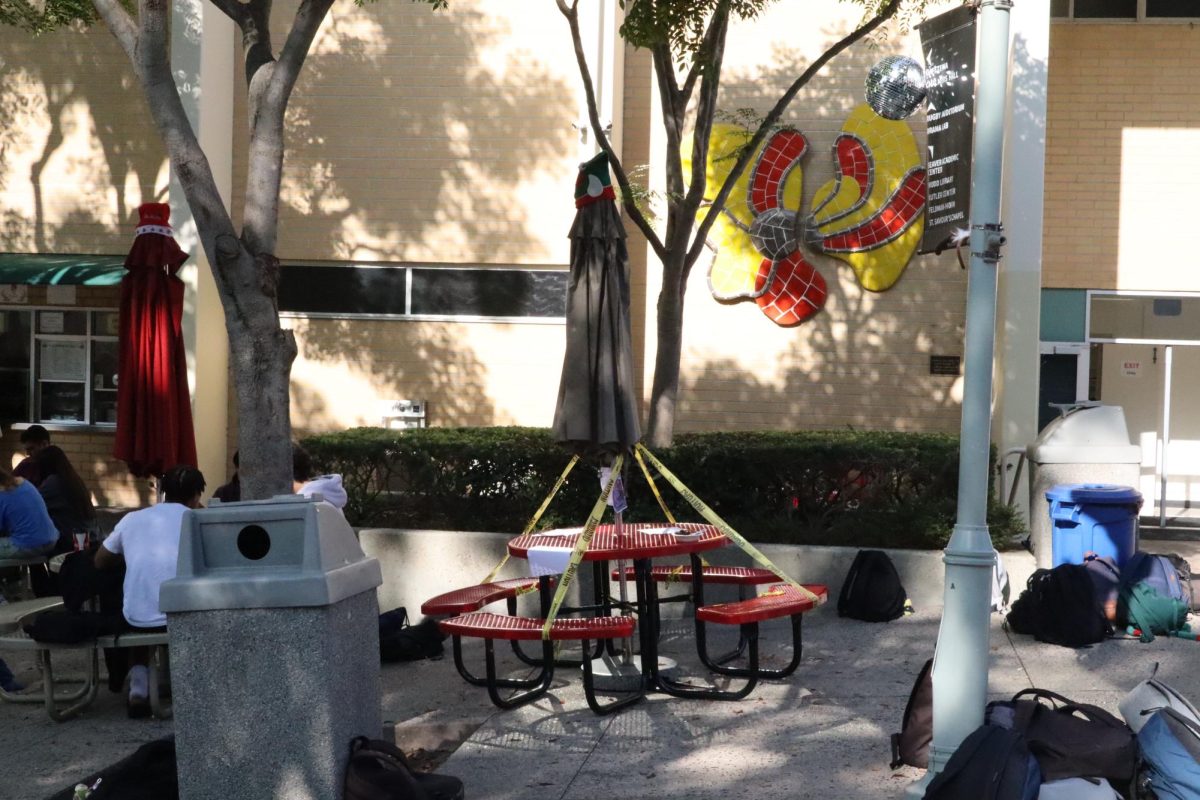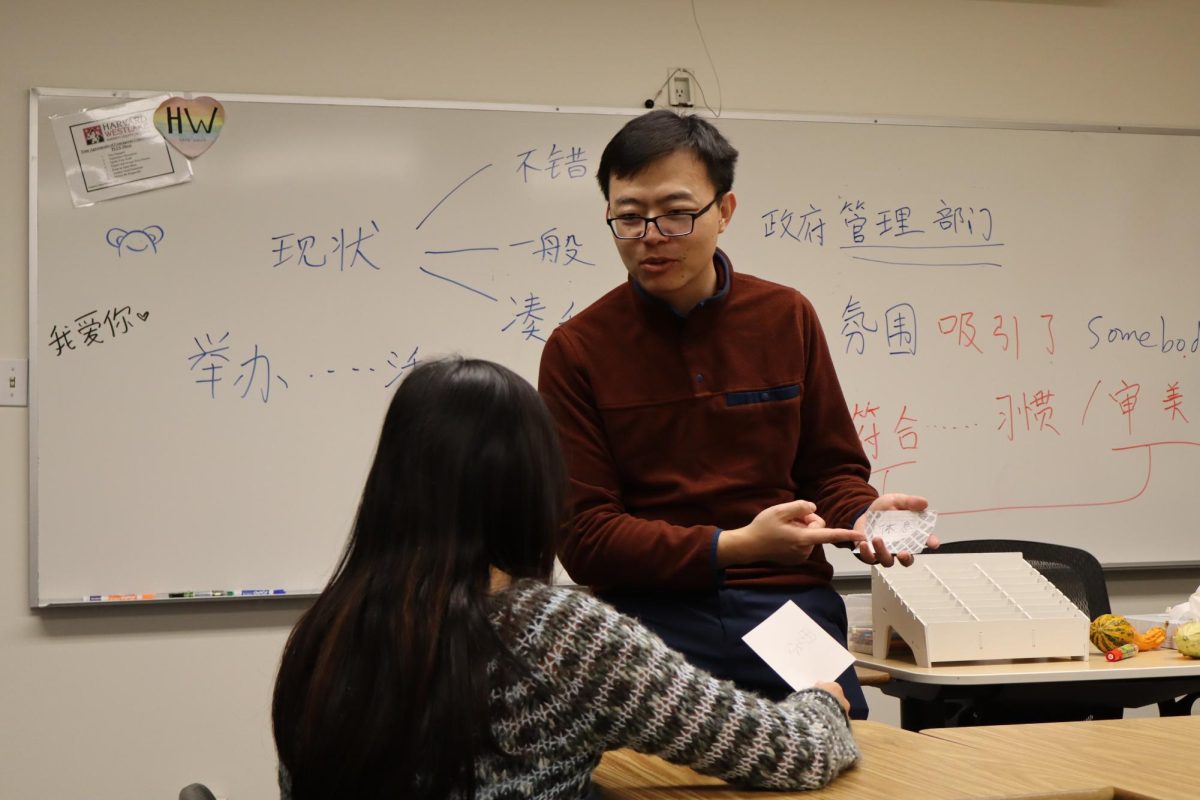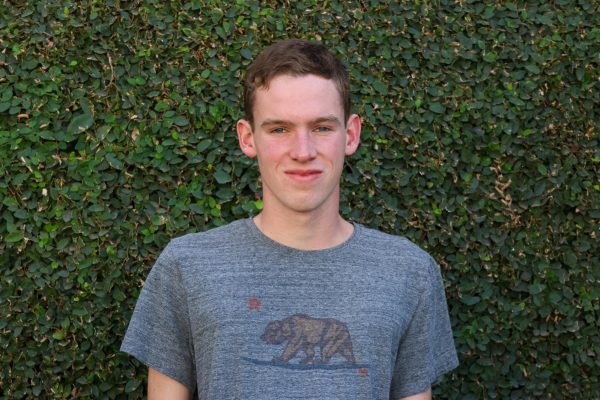The school held a mandatory assembly for juniors and seniors to learn about the history of the Armenian Genocide in Taper Gymnasium on April 12. Armenian Club leaders Andrew Khachatourian ’24 and Derek Esrailian ’24 invited and interviewed Taner Akçam, the Director of the Armenian Genocide Research Program at University of California, Los Angeles (UCLA), about the motives of the Armenian Genocide and modern-day impacts of its denial. Akçam, a 70-year-old male, was born in Turkey and became politically active there during college. At the age of 21, he was arrested for mentioning the Kurdish people in his writings, which was prohibited by the Turkish government at the time. He was imprisoned multiple times in subsequent years but escaped at the age of 24 and went to Germany where he received his doctorate degree with a thesis about the Armenian Genocide.
In his speech, Akçam spoke about how the Armenian Genocide was a systematic destruction of the Armenian people and culture through deportations and executions by the Ottoman Empire during World War I. In the span of eight years, an estimated one million Armenians were killed through death marches and others endured forced conversion. To this day, the government of Turkey denies that the Ottoman Empire committed genocide against the Armenian people.
Esrailian, who is Armenian and helped organize the event with Khachatourian, said he felt it was crucial to inform people about the atrocities his ancestors endured to combat modern denial.
“As Armenians who are the great-great grandchildren of genocide survivors, it is very important to us to help share this dark chapter in Armenian, and world history,” Esrailian said. “Equally so, we wanted to help spread awareness about the suffocating denial perpetuated to this day by the current authoritarian Turkish government and its allies.”
Akçam said a key cause of the Armenian Genocide denial was the lack of a Turkish democratic identity made it difficult to acknowledge that the founders of Turkey participated in such.
“In the United States, some of the Founding Fathers got involved in the extermination of Native Americans,” Akçam said. “But this can be talked about in the United States because society developed a democratic identity. This identity allows you to put a distance between yourself and your founders, so you can talk about these issues. So this is the missing link. If you are not in a democratic country, it is not easy to call your Founding Fathers thieves and murderers.”
Esrailian said the goal of the assembly was to teach students about the genocide with the help of one of the most experienced professors on the topic.
“We hoped that this discussion will significantly supplement the History Department’s teaching of the Armenian genocide, and now will be used as a tool to educate current and future HW students about the matter,” Esrailian said. “Furthermore, Akçam is not only one of the world’s most foremost experts on the subject, but he is also Turkish and represents a community of Turkish citizens, academics, intellectuals and activists who have spoken out over the years in the name of truth and justice.”
Akçam said continuing to remember the Armenian Genocide helps prevent similar horrors in the future
“Remembering [the Armenian genocide] helps prevent further mass atrocities,” Akçam said. “If I give you a simple example, if one of your friends did something wrong, and if he continually denies what he or she did in the past this means there is a potential that he or she can repeat the same mistake. This applies to nations, if one continuously denies what happened in the past, this means there is a potential threat that one day he can repeat the same mistake again and again.”
Edward Ward ’25 said he found Akçam to be an immensely intelligent and interesting person whose story’s selflessness inspired him.
“I thought it was an incredibly powerful and interesting presentation from a true academic,” Ward said. “I have never heard a story from the modern day more powerfully demonstrating the individual’s ability to have free will and selflessness.”






























MN • Apr 29, 2024 at 5:46 pm
No mention of the current genocide occurring?
Bulent Basol • Apr 21, 2024 at 6:54 pm
Taner Akçam is well known for his one-sided views about the Turkish/Armenian conflict, which is highly controversial. It is ironic that Akcam is now at UCLA where a number of years ago a prominent professor of Ottoman history, Bernard Shaw, was threatened and his house was bombed by Armenian extremists because his research findings did NOT support the Armenian claim of genocide. Schools need to be places where controversial issues need to be discussed including all different points of view.
Harry Kassakhian • Sep 4, 2024 at 9:23 pm
The historic, scientific truth of the Armenian Genocide of 1915 is a settled matter.
A geographer has a one-sided view of the spherical shape of the earth, because there is only one truth.
The reason why the Turkish Republic denies the Armenian Genocide (committed by the predecessor Young Turk regime) is to avoid having to return stolen lands to the descendants of Ottoman Armenian. Also, the Young Turks seized wealth worth billions of dollars from the Armenians of the Ottoman Empire, because the Empire was insolvent when World War I began. The theft of these assets was a way to placate the Turkish population. Denialists will falsely claim that the wealthy Ortoman Armenians that the Young Turks robbed and murdered were rebels, Tashnaks. Yet the Ottoman Minister of Finance, Mehmet Cavit Bey, was not a supporter of the Armenian Genocide because Ottoman Armenians were vital taxpayers of the financially distressed Empire. The Young Turks organized the Genocide of the Armenians to loot this important minority’s wealth, similar to the 3rd Reich pillaging the wealth of Central Europe’s Jewish people.